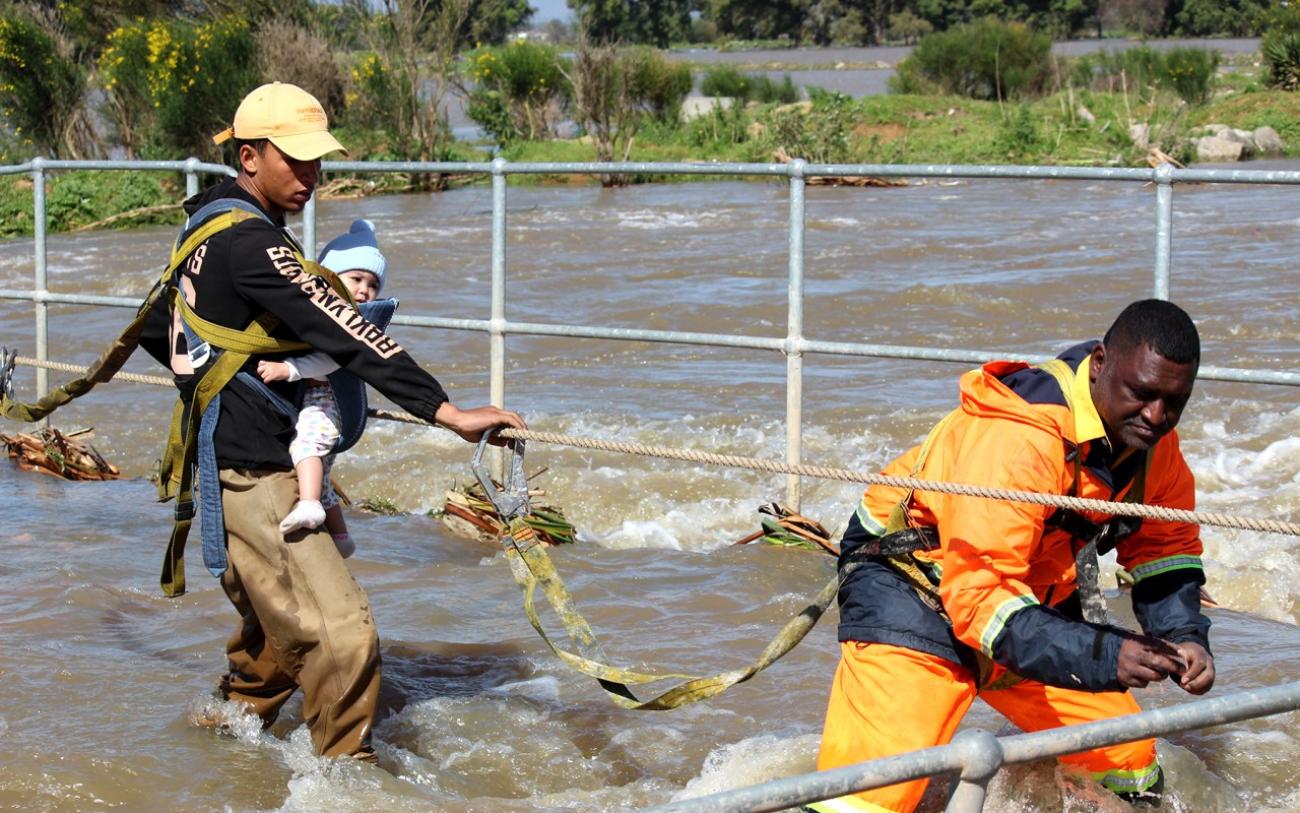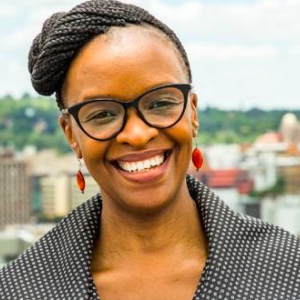Children’s bodies and minds are uniquely vulnerable to the impacts of climate change. They need to be placed at the centre of climate action strategies at the 28th Conference of the Parties to the UN Framework on Climate Change and beyond.
Children are the future” is an oft-referenced cliché. But it’s more than that because they are also the present. Children are living today’s realities and they will be the leaders of tomorrow, inheriting the planet that we, as adults, leave them.
Sadly, the current planetary trajectory is not a positive one.
The triple crisis of climate change, pollution and biodiversity loss is one of the greatest challenges of our generation, and we know that children already shoulder the greatest burden of its impact.
Children are not little adults. Their bodies and minds are uniquely vulnerable to the impacts of climate change, such as pollution, deadly diseases and extreme weather.
Droughts, water scarcity, storms and flooding – all of which are prevalent in South Africa – severely affect child well-being. Environmental crises limit access to safe water and sanitation, nutritious food, education, health and protection services.
The climate crisis is not just changing the planet. It is changing children and it is a child rights crisis.
"Only 2.4% of global climate finance from key multilateral climate funds supports projects incorporating child-responsive activities."
That’s why, as world leaders, UN colleagues, civil society, the private sector and many others gather in Dubai for the 28th Conference of the Parties to the UN Framework on Climate Change (COP28), children and young people must be at the centre of these discussions and actions.
But what does that mean?
Meaningful child participation in policy development that shapes decisions is an important and positive place to start. Children and young people in South Africa and globally are rightly not willing to be passive bystanders when their lives are already being impacted by climate change and environmental degradation.
A Unicef South Africa U-Report poll, conducted in August 2023, revealed that 70% of children and young people surveyed are confident that they can influence policies to respond to their specific needs. Children are driving attention to climate and environmental crises and pushing for action. This momentum was behind the motivation to draft and publish General Comment No 26 on Children’s Rights and the Environment with a Special Focus on Climate Change in August.
The document may sound technical but it’s a critical and practical step forward. For the first time, the United Nations Committee on the Rights of the Child has explicitly affirmed children’s right to a clean, healthy and sustainable environment. It provides authoritative guidance to states on what they must do to uphold these rights under the UN Convention on the Rights of the Child.
In the face of the deepening climate crisis and as the world commemorates the 75th anniversary of the Universal Declaration of Human Rights on 10 December, this is needed more than ever.
This process was not a top-down effort. More than 16,300 children from 121 countries shared their views and ideas to shape the document. “I would like to tell them [adults] that we are the future generations and if you destroy the planet, where will we live?” are the words of a 13-year-old boy from India who took part in the consultations.
Practically, General Comment 26 stipulates key actions that governments must take to ensure every child grows up in a clean, healthy and sustainable environment. This includes keeping their promises to limit the warming of the planet. It requires including children in the development of adaptation plans, decisions and solutions, and better protecting children who are experiencing the effects of climate change. For example, strengthening school buildings and water and sanitation systems against storms, flooding and other weather extremes.
In addition, child rights impact assessments, improving access to justice – such as solutions, support and compensation for the harm children are exposed to – and committing to international cooperation, given that environmental problems do not stop at a country’s border, are all obligations laid out.
"A clean, healthy and sustainable environment is both a human right and a necessary foundation for the full enjoyment of a broad range of children’s rights."
Businesses also have the responsibility to respect children’s rights in relation to the environment. That’s why Unicef South Africa and OHCHR Southern Africa engaged with corporates on Comment 26 at a CEO Network Meeting in September 2023. Opening dialogue with leading business minds in South Africa is an essential part of our work to reaffirm their role in reducing the impact of business activity on the climate and environment.
However, despite children’s unique vulnerability, they have still largely been ignored or disregarded in the response to climate change. For example, only 2.4% of global climate finance from key multilateral climate funds supports projects incorporating child-responsive activities.
Unicef South Africa and the Department of Water and Sanitation recently developed the Climate, Energy and Environment Landscape Analysis for Children in South Africa. The report provides 10 recommendations that strive towards a child responsive agenda to protect children from the risks of climate change, energy choices and environmental degradation. This includes the need to deploy deliberate and explicit language on children and young people in national climate policies and programmes to ensure a more targeted response.
These recommendations, the guidance through General Comment 26 and the outcomes from COP28 must finally be the start of a sustained push to put children at the centre of our shared fight against climate change and environmental degradation. A clean, healthy and sustainable environment is both a human right and a necessary foundation for the full enjoyment of a broad range of children’s rights.
Let’s end with another cliché. This cannot be business as usual – we are literally in a race against time to save the planet for every child. DM
Christine Muhigana is the Unicef South Africa representative and Abigail Noko is the regional representative of the Office of the United Nations High Commissioner for Human Rights in Southern Africa.








